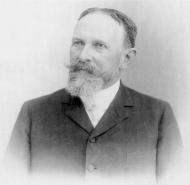The Constitution of May 3, 1791 was drafted between October 6, 1788, and May 3, 1791, when it was adopted as a "Government Act" (Ustawa rządowa) by the Great Sejm of the Polish–Lithuanian Commonwealth (a dualistic state of Poland and Lithuania ruled by a common monarch). The document was designed to redress political defects of the Polish–Lithuanian Commonwealth; the system of "Golden Liberty" had conferred disproportionate rights on the nobility (szlachta), and over time had corrupted politics. Its adoption was preceded by a period of agitation for, and gradual introduction of, reforms, beginning with the Convocation Sejm of 1764 and the election of Stanisław August Poniatowski as the Commonwealth's last king, and culminating in legislation adopted by the Great Sejm.
The constitution sought to supplant the prevailing anarchy, fostered by some of the country's magnates, with a more democratic constitutional monarchy. It introduced elements of political equality between townspeople and nobility and placed the peasants under the protection of the government, thus mitigating the worst abuses of serfdom. It banned pernicious parliamentary institutions such as the liberum veto, which had put the Sejm at the mercy of any single deputy who could choose, or be bribed by an interest or foreign power, to undo all the legislation that had been passed by that Sejm. The constitution's adoption met with hostile political and military responses from the Commonwealth's neighbors. In the War in Defense of the Constitution, the Commonwealth's ally Prussia, under Frederick William II, broke its alliance with the Commonwealth, which was effectively defeated by Catherine the Great's Imperial Russia in alliance with the Targowica Confederation, a coalition of Polish magnates and landless nobility who opposed reforms that might weaken their influence. The King, a principal co-author, eventually capitulated to the Confederates.
British historian Norman Davies describes the document as "the first constitution of its type in Europe"; other historians call it the world's second oldest written constitution after the U.S. Constitution, which had come into effect in 1789. The 1791 document remained in force for only 14 months and 3 weeks. Yet, despite the King's capitulation, the Second Partition of the Polish–Lithuanian Commonwealth (1793), and the 1795 demise of Poland, the Constitution of May 3, 1791, was seen over the next 123 years as an important step toward the eventual restoration of Poland's sovereignty. In the words of two of its co-authors, Ignacy Potocki and Hugo Kołłątaj, it was "the last will and testament of the expiring Country."


























